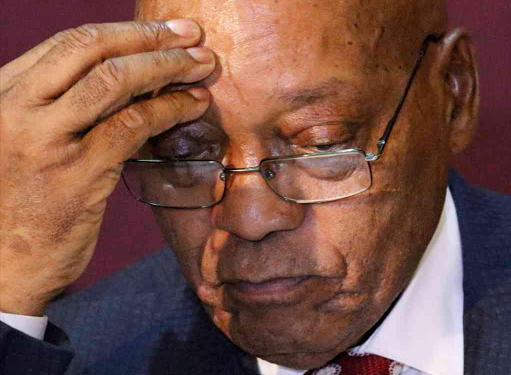Jacob Zuma, former South African President has been barred from participating in the May 29 general election by the electoral commission due to his past convictions.
South Africa’s electoral commissions are expecting the election to be the most competitive vote since the end of apartheid in 1994, hence every precaution to ensure a free and fair exercise is taken.
Concerning the ban Mosotho Moepye, Electoral Commission President said,
“In the case of former president Zuma, yes, we did receive an objection, which has been upheld. The party that has nominated him has been informed.”
Jacob Zuma has embarked on a campaign trail for the newly established uMkhonto WeSizwe (MK) party, aiming to rejuvenate his political career following his incarceration for contempt of court in 2021.
However, Moepye assured the party that the outcome of the Electoral Court would not stop the ballot printing or the election timetable. This is because the image of the party will still be on the ballot paper and the party will still contest.
The move was also launched to weaken his former party, the ruling African National Congress (ANC).
That move seems to be aborted as the electoral commission issues the ban on his participation, which indirectly causes a delay in his comeback into politics.
The general election is to elect a new National Assembly as well as the provincial legislature in each province. This will be the seventh general election held under the conditions of universal adult suffrage since the end of the apartheid era in 1994 (apartheid ended officially in 1990.
Section 47 of the Constitution stipulates that you cannot be elected to Parliament if you have been convicted of a crime and sentenced to 12 months or more in prison. You only become eligible again five years after the end of the sentence.
This constitution was been enacted by the electoral commission when the former president from banned from the election exercises.
Also Read: Why South Africa Is Constructing $2.7m Border Wall
Here’s Jacob Zuma’s Rise And Fall Of A 24-Year Political Career
Former South Africa’s President, Jacob Zuma started his political journey as far back as 1999. Serving as the Vice President at the time, he was also facing separate charges of corruption in an arms procurement scandal.
81-year-old Jacob Zuma was elected as the fourth president of South Africa from 2009 to 2018 to fight corruption, but he was charged for allegedly receiving bribes from a French arms company in 2005 before being elected as President.
In 2014, the Public Protector’s investigation revealed that Zuma had inappropriately benefited from state funds used for upgrades to his Nkandla residence.
Subsequently, in 2016, the Constitutional Court declared Jacob Zuma‘s failure to uphold the Constitution, leading to widespread calls for his resignation and an unsuccessful impeachment attempt in the National Assembly.
During this period, there were also widespread allegations, probed later by the Zondo Commission, regarding the Gupta family’s alleged corrupt influence over Jacob Zuma‘s administration, amounting to state capture.
Following Deputy President, Cyril Ramaphosa‘s election as the new ANC president in December 2017, the ANC National Executive Committee called for Zuma’s resignation. This culminated in Jacob Zuma stepping down on the 14th of February 2018 after a fifth vote of no confidence in Parliament, with Ramaphosa assuming the presidency thereafter.
On 16 March 2018, the National Prosecuting Authority made public its decision to revive corruption charges against Zuma about the 1999 Arms Deal. Jacob Zuma entered a plea of not guilty on 26 May 2021, although the trial was not slated to commence until early 2023.
Three years after his resignation as the President, he was sentenced to fifteen months in prison for contempt of court and released after two months on medical parole.
Jacob Zuma and his legal team abruptly exited the judicial proceedings upon being questioned about a spectrum of corruption allegations linked to his governance, notably implicating the Gupta family, an Indian conglomerate, who were purported to wield substantial sway over his selections for Cabinet positions.










